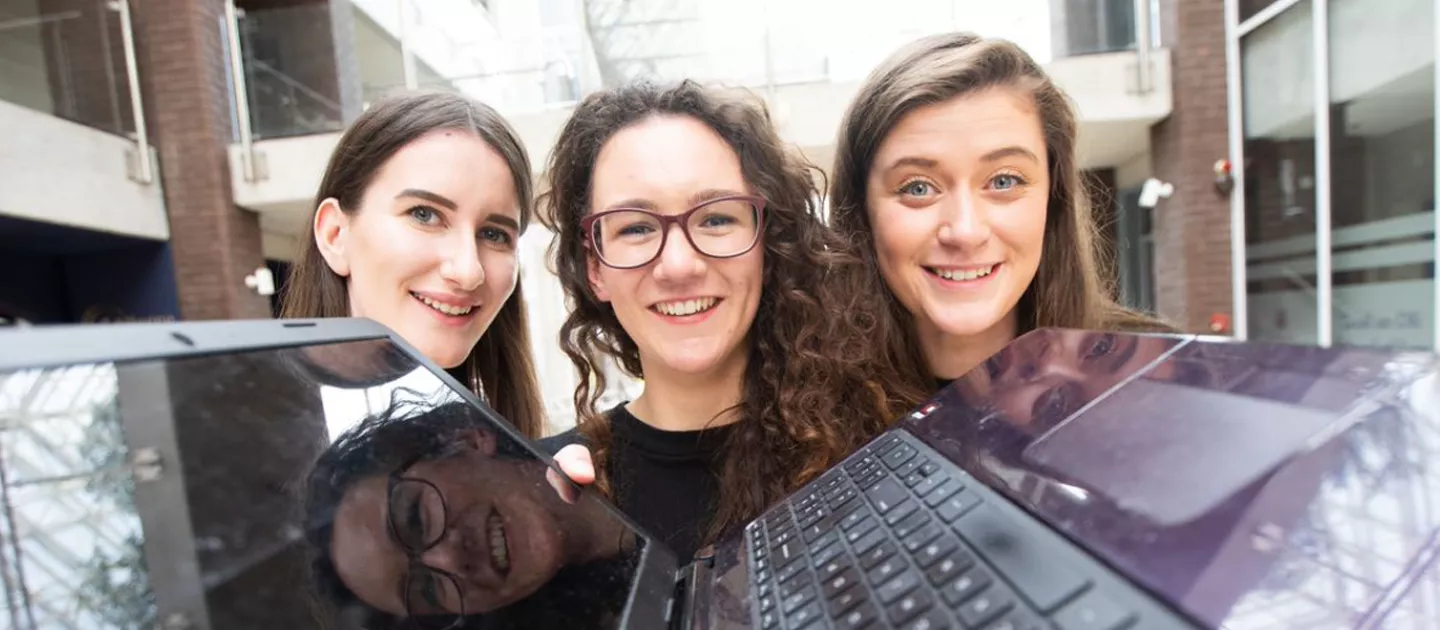A University of Limerick project is changing the way legal services are delivered.
Artificial Intelligence is changing the way in which legal services are provided and University of Limerick is working closely with leading industry professionals McCann Fitzgerald Solicitors, who have invested in Artificial Intelligence and its role in the provision of legal services to clients.
Sinead Eaton, Commercial and Company Law lecturer at the School of Law, University of Limerick explained that McCann Fitzgerald have worked closely with Neota Logic Inc. in this regard and use the Neota Logic platform which allows the development of apps and other automated work flows without a knowledge of coding.
Neota Logic developed an award-winning technology that consists of an AI-powered platform and comprehensive toolset that allows professionals to rapidly build and deploy application solutions that automate their expertise, increasing productivity, improving client satisfaction and creating new business opportunities.
“The School of Law approached McCann Fitzgerald and the outcome was the joint sponsorship of a project for 12 final year law students during which they developed an app for a non-profit organisation,” Ms Eaton told UL Links.
The app was to reflect a method of calculation of legal liability, analyse applicability of a legal instrument or audit compliance with some area of law.
“The project was the first ‘legal-tech’ module in an Irish University,” Ms Eaton explained, adding that “in UL, the final year law students take a capstone module which can take the form of completing a research article, working with Citizens Advice Bureau, studying the ISDA Master agreement, or other options which vary from year to year. Last Spring, AI in the delivery of legal services was one of the options offered“.
University of Limerick was one of three law schools in Europe, with the University of Manchester and London South Bank University, to run modules using the Neota Logic system. The three joined the ranks of over a dozen law schools globally which run legal-tech modules with Neota Logic. Cornell, Georgetown and University of Sydney, for example, were already offering modules on AI/Technology and Legal Services.
“As the first legal-tech module in Ireland, this was a very innovative and ground-breaking collaboration for the three main partners. The online teaching of App building by Neota Logic was exemplary and McCann Fitzgerald and the School of Law provided the students with many ideas on where AI could be used,” Ms Eaton explained.
The idea with the App is to harvest the legal knowledge once and allow the App apply it over and again without the need for the lawyers repeated input.
The School of Law was determined to ensure the students had the opportunity to learn of the legal technology developments in practice and the potential of AI in the future.
“Running the first legal-tech module in Ireland was a great achievement for UL,” Ms Eaton said.
“The students were encouraged to reflect on tasks within the work of lawyers which could be executed more efficiently and cost effectively using AI technology.
“From their interactions with Neota Logic and McCann Fitzgerald, Solicitors, they knew they were involved in something embryonic in the world of legal services. One aspect of my role is to liaise with our Law alumni and encourage them to mentor current students.
Ms Eaton continued, “We’re delighted to partner with Neota Logic and McCann FitzGerald. Our aim is to provide our students with a progressive curriculum that will develop their skills and prepare them for the modern workplace. The introduction of this module, a first in Ireland, is testament to that commitment and will provide our law graduates with the skills they need to pursue careers in an ever-evolving industry.”
Barry Devereux, Managing Partner, McCann FitzGerald said: “The future of law is not solely dependent on legal professionals as we need a variety of backgrounds to continue to drive innovation in our profession. Today’s clients are redefining how they want their legal services to be delivered. While legal expertise is still paramount, clients now rightly demand more efficiency, flexibility and innovation. It’s up to us to deliver that and that includes developing the next generation of legal talent to deliver it.”
- Andrew Carey
